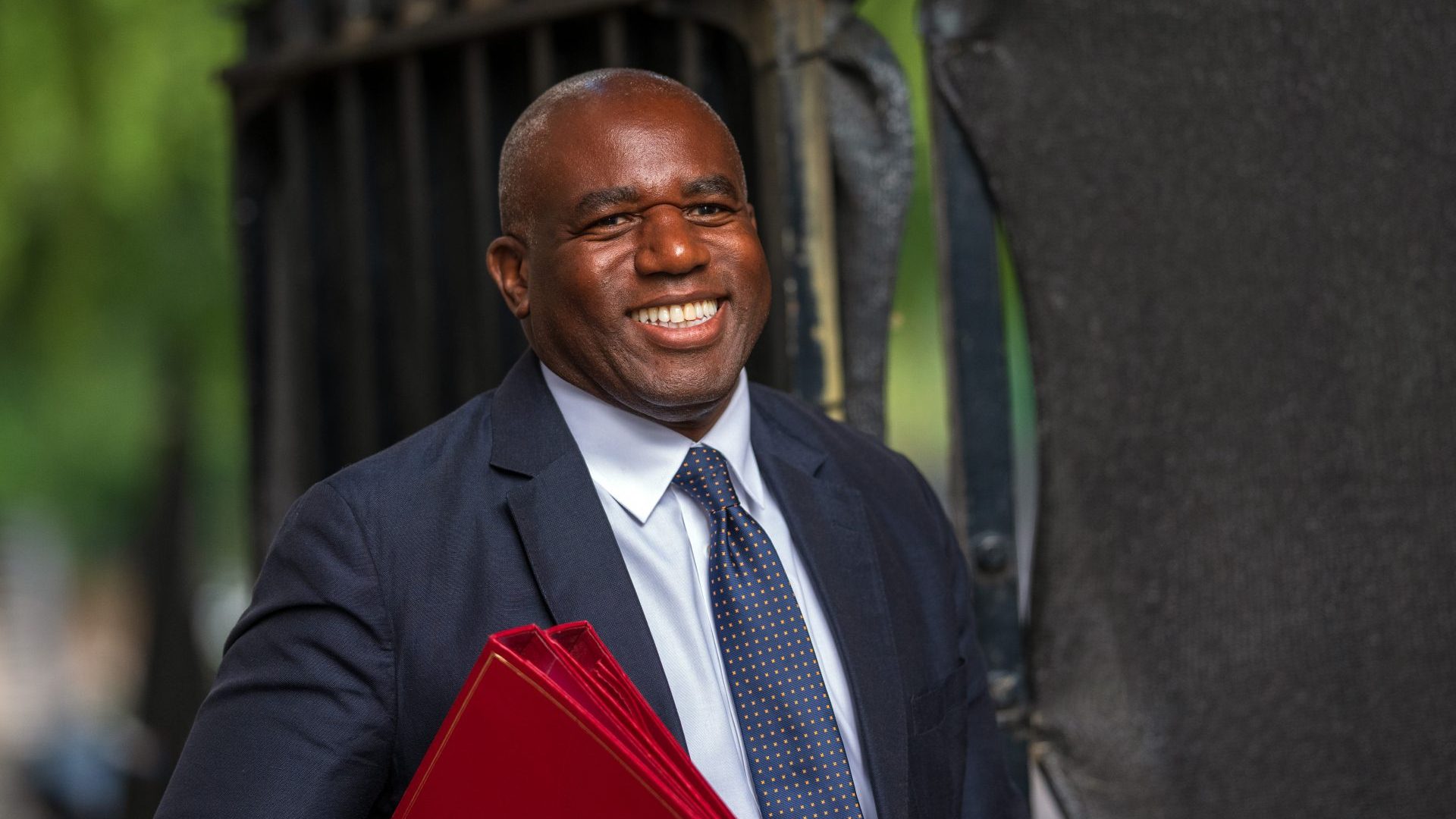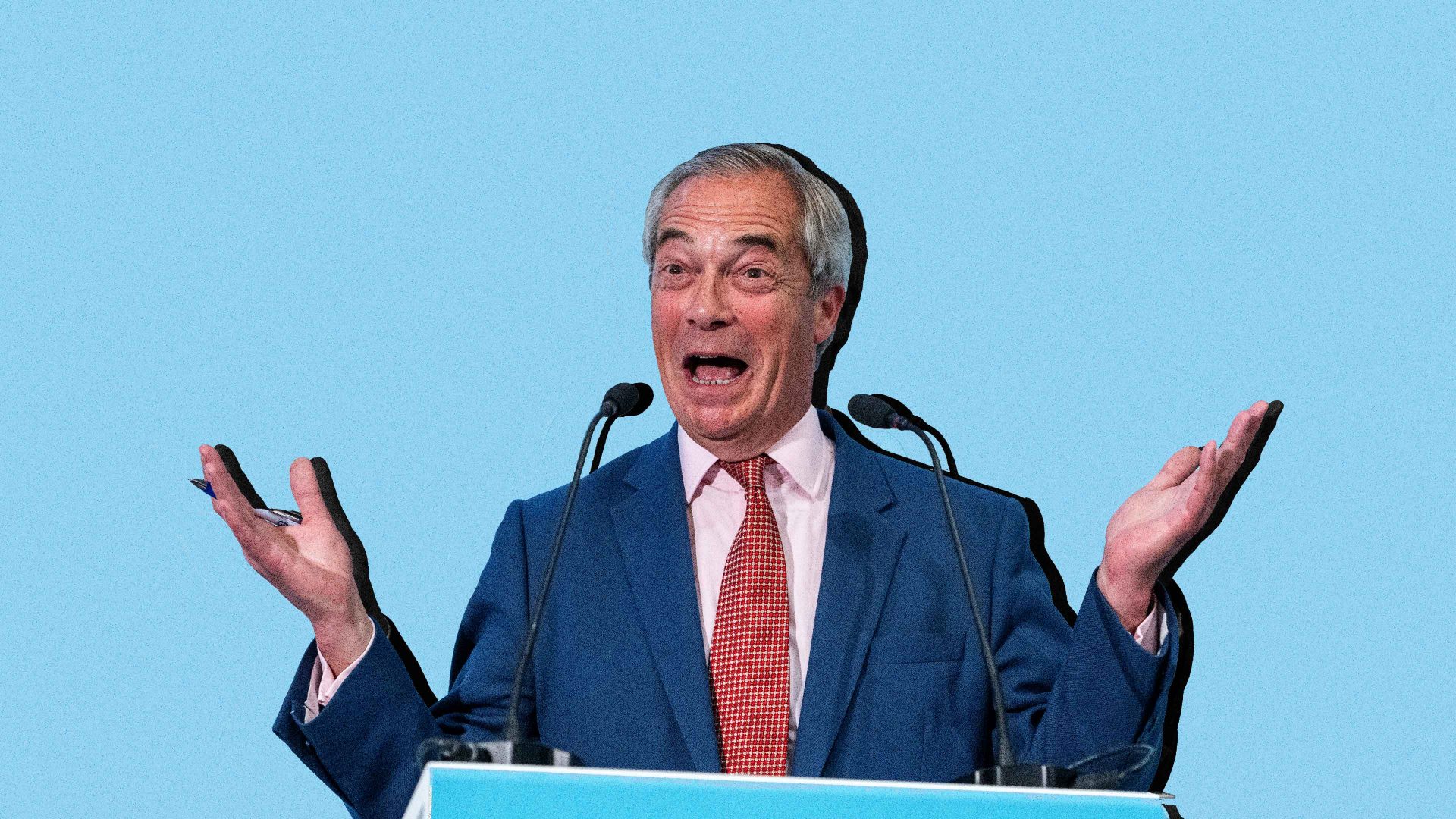Keir Starmer’s new cabinet were appointed by phone, so never got the chance to walk singly up Downing Street to be promoted or shunted sideways. When they first meet it will be without Angela Rayner, whose recurrent carelessness about the legalities of a complicated housing situation made her a sitting duck for the right wing media.
Installed at a time when racist mobs are shouting at hotels housing refugees, when NHS workers are getting abused by racist drunks, and when Nigel Farage can bring 10,000 paying punters to the NEC to watch a carnival of racism, it’s reassuring that the new deputy prime minister is black; that the new home secretary is a Muslim; and that the three great offices of state are held by women.
But beyond that, the new cabinet has to understand the deadly seriousness of its situation. Unless it can start delivering – not just on Labour’s stated policies, but in coherent narrative messaging over the next 18 months – it will hand victory to Reform, which will begin to eviscerate our democracy.
It is clear that Starmer’s reshuffle was planned in advance of Rayner’s departure. The only unplanned moves, therefore, look like the promotion of Steve Reed to housing, Emma Reynolds replacing him at Defra and the appointment of David Lammy as deputy PM, as consolation for losing the foreign office.
For the planned moves, Starmer’s motivation is easy to read. Lammy, despite a Herculean effort, had not managed to ingratiate himself with Donald Trump’s administration. Yvette Cooper had failed to smash the people-smuggling gangs, and her border security command didn’t look like ever achieving that aim.
Jonathan Reynolds’s business department took months to produce an industrial strategy that should have been ready on day one. Liz Kendall’s welfare reform was so badly narrated that it produced an epic backbench revolt that, even now, is being weighed negatively by the financial markets.
Each of these figures is shunted sideways, to make room for people who’ve shown they can do what the government as a whole is failing to do: communicate purpose and make things change.
Achieving this means being brutally clear about the obstacles that have reduced Labour’s first year in office to incoherence and inertia.
The first is that perennial affliction of centrist social democracy: it has no picture of the end-state it is trying to achieve. Its missions (now sidelined) were high growth, green energy, and an efficient NHS, more secure communities and an education system that alters the life chances of working-class children.
But what Labour never properly considered is what it would do once the headwinds to these objectives began to blow.
Suggested Reading


Two speeches, 20 years apart, show Starmer how to tackle Farage
It wants capital to take greater risk, and invest in public-private partnerships for defence, infrastructure and green energy. It thought it could achieve this through “regulatory certainty” – and it has made progress on that: Rayner herself green-lit solar farms and waste-recycling plants. But capital is responding at a snail’s pace, because the whole of capitalism is risk-averse.
Labour is committed to high public investment, and to the principle of borrowing to invest. But the Tories maxed out the borrowing potential of the British state, and – as a result of not abolishing the Office for Budget Responsibility when she had the chance – its flawed predictions are forcing Rachel Reeves closer and closer to the austerity she said she would never do.
Starmer wants politics to “tread more lightly” on people’s lives. Yet thanks to Ofcom – possibly the worst regulator in the universe – an unregulated social media is allowing Elon Musk, MAGA and the Russian state to pump political bilgewater into the public discourse.
What Starmer needs is enemies: people, forces, institutions that the British people are sick of, which can usefully be reformed, abolished or met with the full force of the law.
The fly-tippers; the mobile-phone thieves; the tax dodgers working off the books in the informal economy; the drug dealers corrupting under-age children into a life of crime; the fare dodgers in their inevitable masks and hoodies.
Then there are the rip-off landlords, who Rayner’s legislation – if passed – will deprive of the right to evict tenants without good reason. And the property development firms hoarding land needed for new housing. And the Nimby councils standing in the way of the greening of the energy system.
If you are among the powerless majority who own not two, not three, but precisely no houses, and fear they never will, it is hard to understand why all this rule-breaking and inertia happens. But Starmer and his cabinet have had a ringside seat for more than a year and they know what the ultimate problem is: the civil service is simply not geared up to enact change of the magnitude required; and the technocratic salariat from which it is recruited have no experience of governance in a period of democratic decay and global crisis.
Nigel Farage has an answer to this: rip up the norms of the constitution. Appoint experts to the cabinet, putting them in the Lords and sidelining parliamentary scrutiny. If that’s the advertised prospectus, you can bet that a British DOGE would constitute an even greater threat to our democracy.
To stop it happening, Labour needs to find a way to make Whitehall and the regulatory system work as if its survival depended on it – because with Reform’s current polling, it does.
Labour’s original mission statements were correct: high growth, clean energy, safe streets, and a first-class health and public education system. To make them happen, it needs to mobilise the British state with wartime levels of energy, and mobilise the electorate against those who stand in the way.




